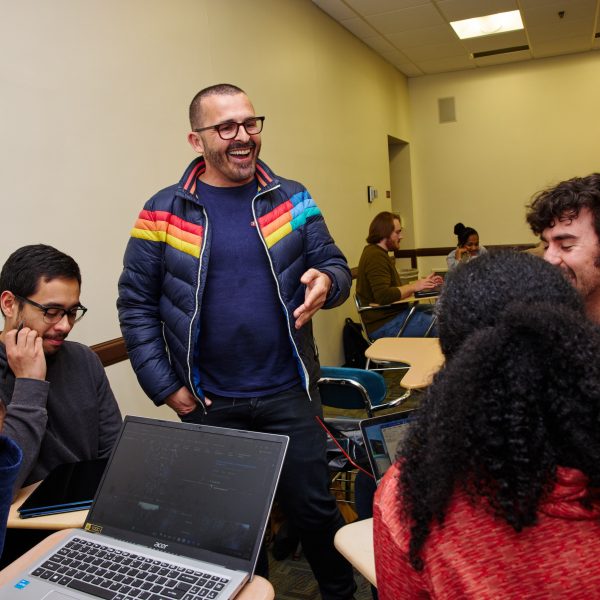Federal Loan Borrowing and Future Annual Income
For US Citizens and US Permanent Residents only
As you consider whether to request federal loans, we strongly encourage you to consult the following resources to help you make an informed decision on your financial needs. When you think about borrowing federal loans, you should take into account:
- your present educational and living expenses
- the future annual income necessary to repay the loans.
The purpose of providing the following information and resources is to encourage informed financial choices and assist the School of Theology students in pursuing their call to ministry with a minimum of financial debt from theological education.
Consider Your Future Income When Borrowing Federal Loans
Research Outside Awards
The School of Theology provides a resource page of Scholarships and Outside Awards. Students are encouraged to review this page to determine if there are any scholarships they are eligible to apply for. A student’s local church or denomination are often good sources of scholarship opportunities. Outside awards are an excellent way to minimize federal loan borrowing.
Students are expected to indicate on the STH Financial Aid application any awards for which they are applying and to notify the School of Theology in writing of any outside awards received. These awards must be factored into the student’s financial aid package. Outside awards may reduce the student’s eligibility to borrow federal funds or receive work-study.
Budget Resources
Students can use this budget resource from Studentaid.gov to tally their anticipated educational and living expenses and potential aid sources.
Current tuition and fees can also be found here.
Additional Budget Resources
GradSense.org: Information to help students make informed financial decisions regarding topics such as the value of obtaining an advanced degree, potential future earnings, responsible borrowing and spending, and compound interest.
Mint.com: Manage your personal finances
FeedthePig.org: Savings and budgeting tips to help you identify your habits and reduce debt.
WikiHow.com: How to Save Money
TheSimpleDollar.com: 100 Great Tips for Saving Money
Boston University Smart Money 101
“Smart Money 101 is a BU Financial Assistance initiative established to provide the Boston University community with online tools, information, and other resources to promote effective money management.” Information and tips on budgeting, credit cards/scores, student loan repayment, identity theft and scams, workshops and more.
Review Your Loan History & Repayment Estimator
Your Loan History
The National Student Loan Data System (NSLDS) is a tool for students to review their loan history. More information on NSLDS can be found here.
Through StudentAid.gov, users can now:
- view their federal student aid history, including loan detail, grant detail, and overpayment detail;
- get their loan servicer’s contact information;
- download their federal student aid history into a text file using the MyData Download function.
Repayment
It is very important to review your current debt level when considering requesting new loans. Questions to consider include:
How will I repay the federal loans I have already taken? Information on repayment plans can be found here.
How much will I need to repay with interest? Students can estimate the repayment amount for their loans using the Repayment Estimator which shows repayment plan options and amounts. Students with previous loans should contact their lender directly to determine their exact repayment schedule.
Public Service Loan Forgiveness
The Public Service Loan Forgiveness (PSLF) Program forgives the remaining balance on your Direct Loans after you have made 120 qualifying monthly payments under a qualifying repayment plan while working full-time for a qualifying employer. Find more information about eligibility and the application process here.
The Institute of Student Loan Advisors (TISLA) at freestudentloanadvice.org offers fair, free student loan advice about, including the PSLF program. Find the link to a webinar offered by TISLA for the BU School of Theology about the Public Service Loan Forgiveness Program here.
Studentaid.gov
Studentaid.gov is your source for information from the US Department of Education on how to manage your student loans.
- Entrance Counseling: required if the student did not complete it at a previous institution
- Financial Awareness Counseling: required for the first federal loan borrowed at STH (basics of financial management, current federal student loan debt, estimate of student’s loan debt at the time they leave school)
- Exit Counseling: required prior to graduation
- Master Promissory Note: required for the first federal loan borrowed at STH
- Managing Repayment
Financial Awareness Counseling
Financial Awareness Counseling can be found at Studentaid.gov. It provides borrowers the basics of financial management, shows their current federal student loan debt, and provides an estimate of what their student loan debt is likely to be at the time they leave school.
This tool will help bring new transparency to the process of debt management on the front end and empower students to keep their school loan payments on track and on time after graduation.
The Financial Awareness Counseling Tool provides students with five interactive tutorials covering topics ranging from managing a budget to avoiding default. Students are able to access their individual loan history and receive personalized feedback that can help them better understand their financial obligations.
Federal Student Aid on Social Media





